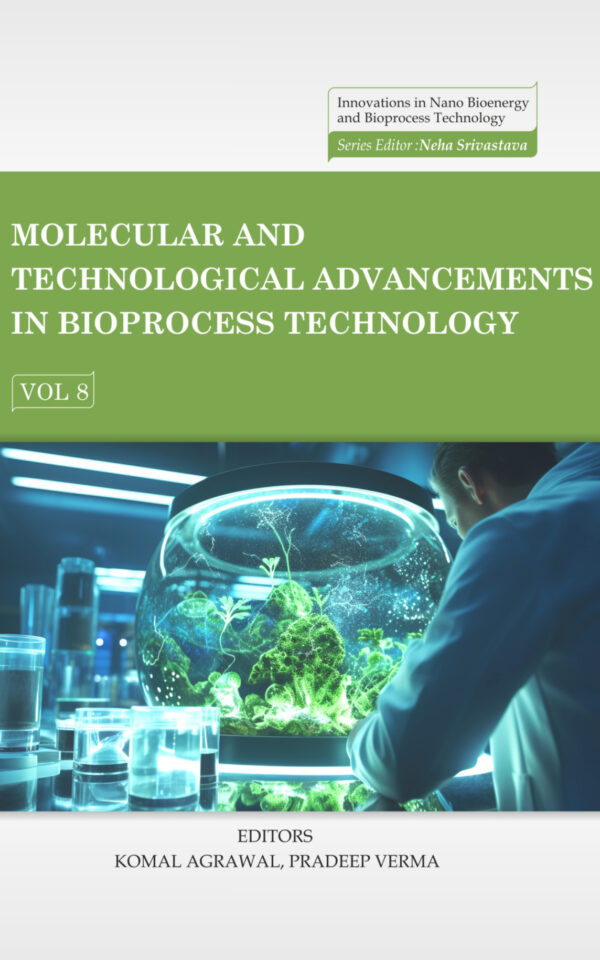Sustainable Textile Applications
Original price was: $119.95.$107.95Current price is: $107.95.
In an era defined by environmental urgency and social awakening, Sustainability in textile sector presents a hopeful, science-driven roadmap toward a cleaner, fairer, and more resilient global textile industry. At a time when the fashion sector faces mounting scrutiny for its role in climate change, water pollution, and labor exploitation, this book emerges as a timely and necessary guide. With a focus on solutions, innovation, and ethical transformation, it invites readers—from students to industry professionals—to become active participants in a more sustainable future.
Description
In an era defined by environmental urgency and social awakening, Sustainability in textile sector presents a hopeful, science-driven roadmap toward a cleaner, fairer, and more resilient global textile industry. At a time when the fashion sector faces mounting scrutiny for its role in climate change, water pollution, and labor exploitation, this book emerges as a timely and necessary guide. With a focus on solutions, innovation, and ethical transformation, it invites readers—from students to industry professionals—to become active participants in a more sustainable future.
The book’s foundation lies in a clear-eyed yet optimistic view of the textile lifecycle—from the soil where fibers are grown to the garments in our closets and their eventual return to the earth or recycling stream. Through comprehensive scientific analysis and global case studies, it redefines how textiles can be produced, consumed, and reimagined in harmony with both people and the planet. At the core of this vision is the urgent need to transition away from resource-intensive and polluting materials. The book provides a deep dive into the world of sustainable fibers, offering detailed comparisons between conventional and organic cotton, hemp, linen, bamboo, and other natural alternatives. It highlights regenerative agriculture—no-till farming, biodiversity restoration, and carbon-sequestering crops—as a powerful solution to both environmental degradation and rural economic challenges. Fibers like jute and banana, often overlooked, are presented not only as biodegradable materials but as drivers of socio-economic resilience in the Global South.
Synthetic fibers, while often criticized, are not dismissed. Instead, the book takes a forward-looking approach, detailing innovations in recycling technologies such as PET depolymerization and closed-loop nylon production. It introduces emerging biopolymers like polylactic acid (PLA) and PHA, derived from renewable feedstocks like corn and algae. These new materials, combined with advanced fiber-to-fiber recycling and biodegradable alternatives, represent a bold opportunity to decouple textile production from fossil fuels and landfill dependency. What makes this book especially critical right now is its emphasis on manufacturing transformation. The textile industry is one of the largest industrial users of water and energy. This book presents scalable technologies—enzyme-based processing, supercritical CO₂ dyeing, digital patterning, and 3D knitting—that are dramatically reducing the environmental footprint of textile production. These advances are not speculative; they are real, tested, and ready for adoption. Readers are given not only the science but the strategy—how businesses can integrate these technologies to reduce emissions and resource consumption without compromising on performance or profitability.
Equally important is the book’s focus on people. Labor rights, gender equity, and ethical sourcing are not treated as peripheral topics—they are central pillars of sustainable textiles. Drawing from global labor reports, fair trade initiatives, and community-based programs, the book argues for a textile future built on dignity, empowerment, and justice. It highlights how transparent supply chains and certifications like GOTS, OEKO-TEX, and Fair Trade can protect workers and assure consumers. Most importantly, it shows that ethical labor and environmental stewardship go hand-in-hand—and that both are non-negotiable in any sustainable business model. The book also addresses the growing role of the consumer. Fast fashion is not just a production problem; it’s a behavioral challenge. This book explores how education, digital tools, and consumer incentives can shift purchasing patterns toward slow fashion, rental models, and secondhand markets. By citing real-world studies on behavior change, it shows how awareness leads to action—and how collective action drives industry-wide change.
In the face of a global textile waste crisis—over 90 million tons discarded each year—the book offers a clear vision of circularity. It maps out how chemical and mechanical recycling, mono-material design, and take-back systems can close the loop. It explores companies pioneering these models, proving that sustainable fashion isn’t a niche—it’s the future. Rooted in science and policy, the book aligns its guidance with the United Nations Sustainable Development Goals (SDGs), particularly those focused on clean water (SDG 6), responsible consumption (SDG 12), and climate action (SDG 13). It features global initiatives like the Ellen MacArthur Foundation’s Circular Economy for Fashion and the UN Fashion Industry Charter for Climate Action as frameworks for implementation and accountability.
Ultimately, Textile Sustainability: From Fiber to Fashion is more than a book—it’s a call to action. It affirms that a sustainable textile industry is not only possible but within reach. With informed innovation, cross-sector collaboration, and empowered consumers, we can transform one of the world’s most polluting industries into a force for climate resilience, equity, and regeneration. Whether you’re a designer, policymaker, educator, or conscious consumer, this book equips you with the knowledge, tools, and inspiration to be part of the solution.
Book Contents:
- Introduction to Sustainable Textiles
- Sustainable Textile Fibers
- Sustainable Textile Manufacturing Processes
- Sustainable Textile Product Design
- Textile Recycling and Waste Management
- Sustainable Textile Certifications and Standards
- Sustainable Textiles in Fashion
- Sustainable Textiles for Technical and Functional Applications
- Textile Recycling and Circular Economy
- Water and Energy Efficiency in the Textile Industry
- Social Impact of Sustainable Textiles
- Environmental Impact of New Textile Technologies
- Innovations in Sustainable Textile Technologies
- Consumer Behavior and Sustainable Textiles
- Policy, Regulation, and Global Initiatives
- The Future of Sustainable Textiles
Bibliographical Information
| Weight | 0.525 kg |
|---|---|
| Dimensions | 22.9 × 15.2 × 3.57 cm |
| Author | Shivi Rastogi |
| Binding | Hardback |
| Year | 2025 |




